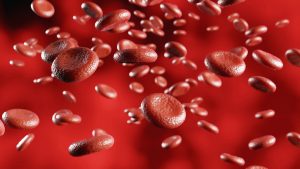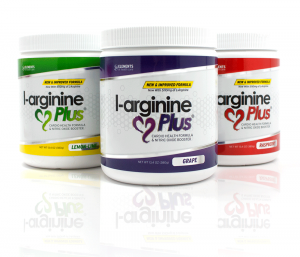When it comes to your health, it’s important to manage your cholesterol levels – but where does cholesterol come from? Learn the facts.
First, it’s important to know that cholesterol is not inherently “bad”; it actually helps build cells, vitamins, and more. It mainly comes from two sources: your liver and foods from animals (meat, poultry, dairy products, etc.).
However, these foods also contain high levels of saturated and trans fat, which cause your liver to make excess cholesterol. Other oils (palm oil, palm kernel oil, coconut oil) also increase your levels and are usually in baked goods.
The Importance of Cholesterol
Cholesterol flows throughout your body via blood and high levels of it can increase the risk of cardiovascular diseases. The two main types are LDL cholesterol (the “bad” kind) and HDL cholesterol (the “good” kind).
As cholesterol increases, it can create plaque inside your arteries and result in atherosclerosis, a heart attack, or stroke. However, by checking your levels, changing your lifestyle habits, and controlling your levels, you’ll decrease your risk of heart disease.
Good vs. Bad Kinds
 The body has two types of lipoproteins that carry cholesterol to and from the cells: LDL and HDL. LDL (or low-density lipoprotein) is the bad kind, while HDL (high-density lipoprotein) is the good kind.
The body has two types of lipoproteins that carry cholesterol to and from the cells: LDL and HDL. LDL (or low-density lipoprotein) is the bad kind, while HDL (high-density lipoprotein) is the good kind.
A doctor can test your levels and tell you how much of each you have. The following is a quick breakdown of each type.
LDL Cholesterol
Known as the “bad” cholesterol, LDL contributes to fatty buildup in the arteries, resulting in atherosclerosis. As a result, the arteries become narrow, which increases the risk of heart attacks, stroke, and peripheral artery disease.
HDL Cholesterol
In contrast, HDL is the good kind because it can help strengthen your heart health. It does this by removing excess LDL from the arteries and taking it to the liver, where it gets broken down.
However, as beneficial as HDL is, you’ll need more than that to completely eliminate LDL. HDL can only carry between one-third to one-fourth of blood cholesterol.
Triglycerides
In addition to LDL and HDL, you need to know what your triglyceride levels are and manage them properly. They are the most common type of fat in the body and store excess energy from your diet.
If you have high triglyceride levels along with high LDL and low HDL levels, it can lead to fatty buildups. In other words, a high amount of triglycerides can increase the risk of stroke and heart attacks.
The Outlook
 While the body naturally makes cholesterol, eating certain foods can create excess amounts that damage your health. For this reason, you need to know what you’re eating and whether it increases your LDL or HDL levels.
While the body naturally makes cholesterol, eating certain foods can create excess amounts that damage your health. For this reason, you need to know what you’re eating and whether it increases your LDL or HDL levels.
If you want to promote a healthy heart, you need to exercise, eat healthily, and take supplements like L-arginine Plus. It contains ingredients that help the body’s ability to produce nitric oxide, a natural compound that improves circulation.
Take L-arginine Plus along with your healthy diet if you want to promote your circulation and heart health.

